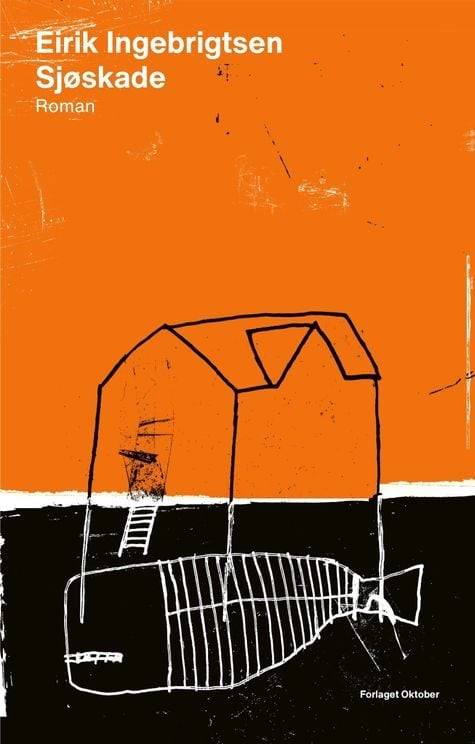“A powerful drama of fate between a man and a whale … The reason why this novel makes such a powerful impression is its form. Ingebrigtsen has a high level of precision … Through Ingebrigtsen’s rhythmic, hypnotic prose, the reader is sucked into Johs’ universe … The pollution of our planet becomes both stinky and existential when Ingebrigtsen lets the problems act out within a whale and a man. It’s very well done”
NRK Bok
“Eirik Ingebrigtsen impresses again … Numerous themes are baked into this tight, well-written little novel. Above all, the fear of not mastering one’s professional life after a traumatic accident, mixed with shame and helplessness, are beautifully woven into this book, which feels both sensuous and poetic. Sea Damage is a soft-spoken, formally conscious novel with great pressure”
Dagsavisen
“A powerful environmental novel … Ingebrigtsen’s writing is flexible and strong, he is the king of the comma, and the slightly breathless language adds a rhythm to the text that suits its concrete, everyday qualities. The interplay between three generation works well … The empathetic will to care is infective. There is a quiet joy in this novel”
Adresseavisen
“Human emissions is an obvious recurring motif in this novel … It’s impressive how Ingebrigtsen manages to make this undramatic drama unfold, primarily through the relationships Johs has to his daughter and father, both of whom are presented through delicate, nuanced portraits. With Johs as his narrator, Ingebrigtsen has set up a quite brilliant literary starting point. The delayed injuries from the diving accident makes the main character’s thoughts get tangled up in each other … The constant buzz of thoughts also warrants the associative, hypnotic style that distinguishes the novel and makes the reader think of both Jon Fosse and Gunstein Bakke, and perhaps also Tarjei Vessas, who challenged how we conventionally see the relationships between humans and animals”
Vårt Land
“A captivating novel about the sea, death, love – and the plastic inside a beaked whale … The author paints an intimate portrait of the individual, of simple everyday things, of fear and care … The writing is close to a kind of stream of consciousness, with coordinated clauses and repetitions, rythmic, poetic, precise and hypnotic, and with few full stops or pauses. Still, the prose is subdued and quiet; a breathing space unto itself … a powerful, topical book”
Stavanger Aftenblad

